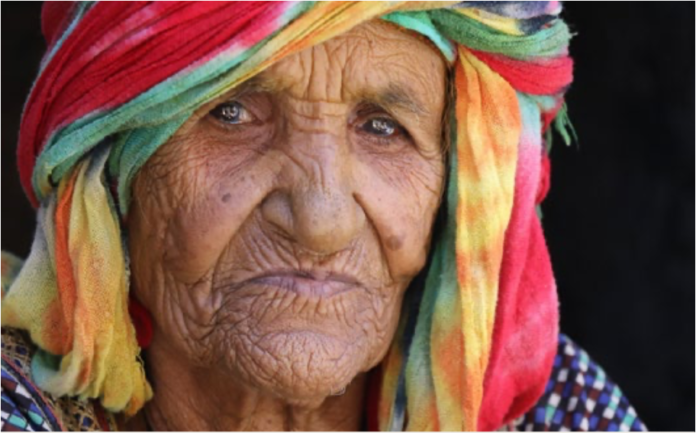A new report from aid agencies Age International and HelpAge International, If not now, when? criticises the humanitarian sector for its failure to address the needs of older people in emergencies. This failure contravenes several international commitments made in recent years and flies in the face of humanitarian principles.
Verity McGivern, HelpAge’s Humanitarian Advocacy Adviser and co-author of the report said:
“It’s heart-breaking to see how older people’s needs are so often neglected in emergency responses just when they are most at risk. The aid community has made promises to rectify this, but progress is long overdue. Too many older people’s lives depend on it.
“In the face of conflict, climate change and cuts to humanitarian aid, older people are increasingly at risk in emergencies, but the COVID-19 pandemic has propelled this to a whole new level.”
The report uses information gathered from interviews with almost 9,000 older people affected by natural disasters, conflict or socioeconomic crises in 11 countries, including Syria, Yemen, Ethiopia and Pakistan.
It shows how older people, despite the risks they face during emergencies, are often marginalised and in some cases excluded by the humanitarian aid response. Consequently, humanitarian responses are not meeting older people’s basic needs; of the older people surveyed, 64 per cent did not have enough to eat and more than three-quarters (77%) had no income.
Humanitarian needs assessments and humanitarian response plans in the 11 countries covered by the report shows that age-disaggregated data for older people was included in only three: Syria, South Sudan and Venezuela. And this can often influence the level of funding available for older people. (See notes to editor for list of 11 countries).
Ingrid Kuhfeldt, Regional humanitarian manager for Latin America & Caribbean for HelpAge International, said:
“It’s extremely difficult to access funding for older people, as opposed to, for example, women and children, as that’s seen as the more ‘engaging way to attract aid’.
“Disaggregated data on older people, highlighting their specific needs, is very hard to obtain. The UN is thankfully getting much better at this, but most national civil society NGOs don’t provide this information. In Venezuela, that is because older people are not seen as important by many, even within families.”
The report criticises the humanitarian sector for adopting a ‘one size fits all’ aid approach which fails to take into account the specific needs of older people and stops many older people from accessing even general services. It found that 39 per cent of older people surveyed could not reach aid distribution points independently and whilst almost all (98%) had a medical condition, almost half said there was no medicine available (49%) and that health services were too expensive (46%).
This situation has been compounded by the COVID-19 pandemic, which has thrown into stark relief the gulf between the risks facing older people and the level of support available to them.
Ken Bluestone, Head of Policy and Influencing at Age International and co-author of the report, said:
“The specific needs of older people are often neglected during emergencies so it’s hardly surprising that the aid delivered fails to meet these. Aid agencies must include older people in consultations: their lives matter and the important contribution older people can make in their communities during an emergency, improving lives for everyone, should not be overlooked.
“The findings of our report show how the humanitarian system is systematically failing older people in what is tantamount to neglect. In spite of making promises, older people are consistently being left behind.
“There is a further risk that the ability to fulfil commitments to older people in humanitarian settings will be compromised, if governments reduce their aid commitments.
“Our recommendations can help the humanitarian sector respond to the COVID-19 pandemic in a better way for older people. There is no excuse for their neglect and we should be doing better. As COVID-19 has shown now, more than ever, is the time to fix it.”
If-not-now-when-ReportFounder and Director
Shereen Husseinis a Health and Social Care Policy professor at the London School of Hygiene and Tropical Medicine (LSHTM), United Kingdom.
Shereen Founded the MENARAH Network in 2019, through an initial grant from the Global Challenge Research Fund, UKRI. She is a medical demographer with expertise in ageing, family dynamics, migration and long-term care systems. Shereen regularly collaborates with the United Nations, the World Health Organisation and the World Bank in policy and research focused on ageing in the Middle East and North Africa Region.
Shereen received her undergraduate degree in statistics and a postgraduate degree in computer science at Cairo University. She completed an MSc in medical demography at the London School of Hygiene and a PhD in quantitative demography and population studies at the London School of Economics and Political Science, United Kingdom.



